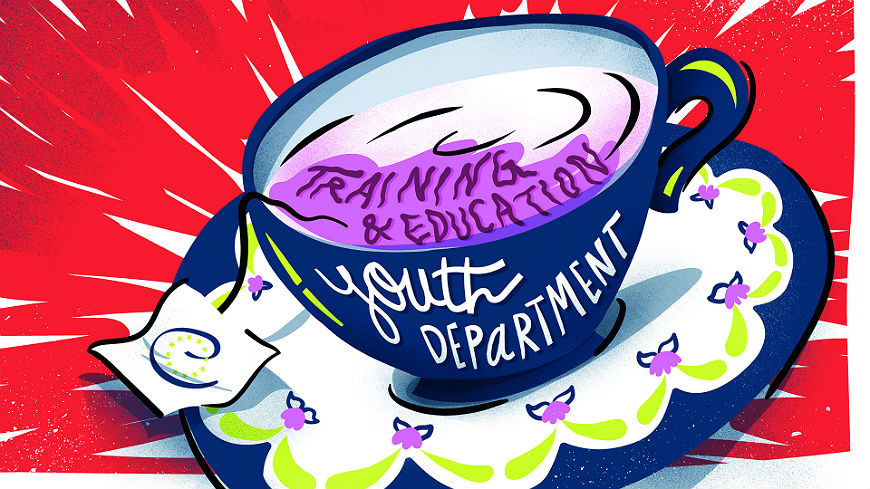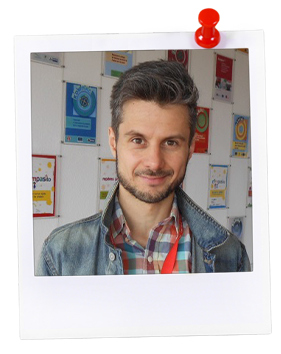Training and education at the Youth Department of the Council of Europe
by László Milutinovits and Natalia Chardymova
03/10/2019
Where does the Council of Europe’s Youth Department fit in the bigger picture of youth work training in Europe? Natalia and László give us their considered view.
Have you been to either of the European Youth Centres of Budapest or Strasbourg before, or made use of publications or participated in European youth campaigns of the Council of Europe? Or are you interested in doing so? If yes, this article gives you an insight into the role and work of the Council of Europe’s Youth Department in the area of training and education in its complexity, discovering the origins, priorities, main aims and objectives of its programme and educational and quality assurance approaches.
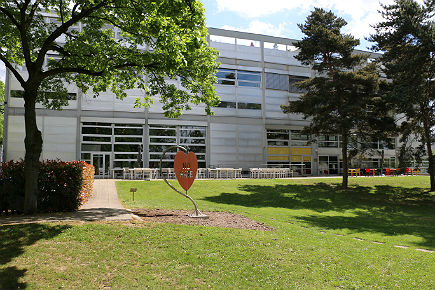 |
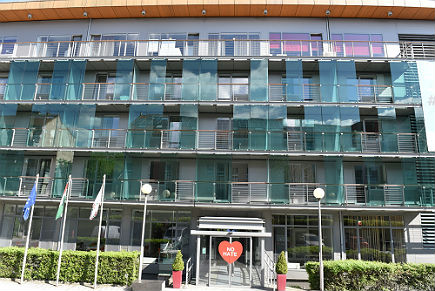 |
Explain briefly the core of the work of the Council of Europe’s Youth Department on training (what is it, who is involved, what do you do, since when, how, what for, who are the trainees, who are the trainers involved).
The Youth Department is part of the Directorate of Democratic Participation within the Directorate General of Democracy (DGII) of the Council of Europe. The Department provides space for and organises training and educational activities since the late 1960s, early 1970s, aiming to promote youth citizenship, youth mobility and the values of human rights, democracy and cultural pluralism. The educational programme is closely interlinked with the Youth Department’s efforts in elaborating guidelines and legal instruments for the development of coherent and effective youth policies at local, national and European levels. Through the European Youth Foundation it also provides funding and educational support for local and international youth activities.
The training and education activities in the frame of the Youth for Democracy programme mostly take place in the European Youth Centres in Strasbourg and Budapest, under the administrative and educational support of the Education and Training team of the Department, while there are also a number of activities realised at national and regional level. The educational programme of activities is always designed and run by teams with the support of educational advisors – teams consisting of senior and junior trainers or facilitators delegated by youth networks. It is expected that teams have experience in non-formal learning, youth work and intercultural learning, as well as other expertise, according to the activity. In the implementation of its programme of activities, the Youth Department relies on its Trainers Pool (TP), a group of trainers and educational consultants. Our residential training and education activities are often complemented by facilitated e-learning programmes through the Moodle-based platform of the Youth Department.
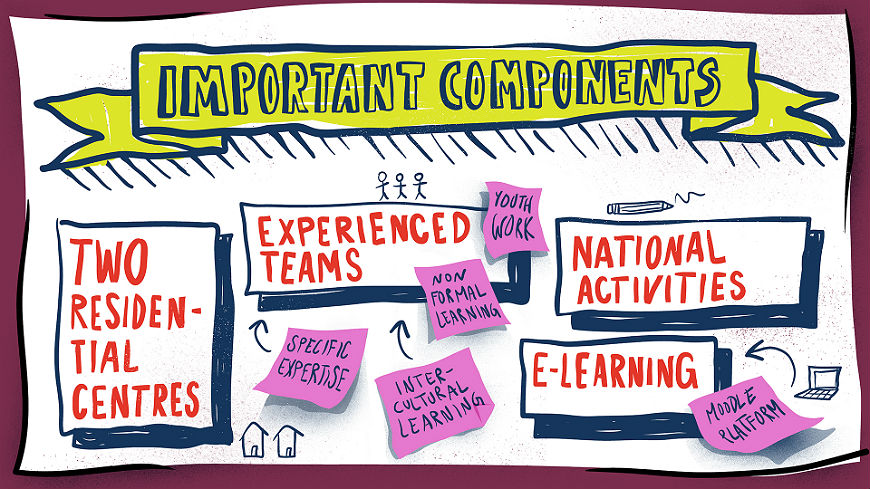
The EYCs have a long-lasting tradition of hosting study sessions – activities that are based on co-operation between the partner organisations and the Youth Department. They are international educational youth seminars, lasting between four and eight days, bringing together members of youth organisations or networks and experts for discussions on a specific subject relevant to the priorities of the Council of Europe – all of them are meant to provide a safe and accessible space for participants for living and learning together in a human rights education-based framework.
In order to directly link activities to the overall mission of the Council of Europe, and to enhance co-operation between young people, their organisations and other stakeholders, decision makers, representatives of the co-management of the Council of Europe’s youth sector and experts and colleagues from other sectors of the organisation are often involved or invited to provide input to our activities.
What are the main goals of training, as reflected in the work of the Council of Europe’s Youth Department on training? How do you measure the impact?
The strategic priorities for each biennial programme of the youth sector are defined by the Joint Council on Youth, which is the central co‐managed political body of the youth sector. The three strategic priorities for the current 2018‐19 biennium focus on the following three:
- Access to rights
- Youth participation and youth work
- Inclusive and peaceful societies
Under these priorities, a series of activities such as training courses, conferences, seminars, consultative meetings, youth peace camps and study sessions are organised. Research and educational manuals are also produced and widely disseminated, thereby reaching out to a wider population of youth workers, NGOs and authorities – the COMPASS manual for human rights education with young people, Bookmarks, Gender Matters and the training kit (T-Kit) series published by the EU-Council of Europe Youth Partnership are just a few examples of these useful handbooks.
Behind all activities of the Youth Department’s programme there is an overarching human rights education-based approach. In our understanding, human rights cannot be protected by legal means only – members of all societies must be educated about their rights and become promoters and protectors of rights themselves. As it is pointed out in the COMPASS manual:
Knowing about human rights is not enough; people must also develop skills and attitudes to act together to defend human rights, and they must use their heads, hearts and hands to bring about the personal and social changes necessary for the creation of a global culture of human rights.
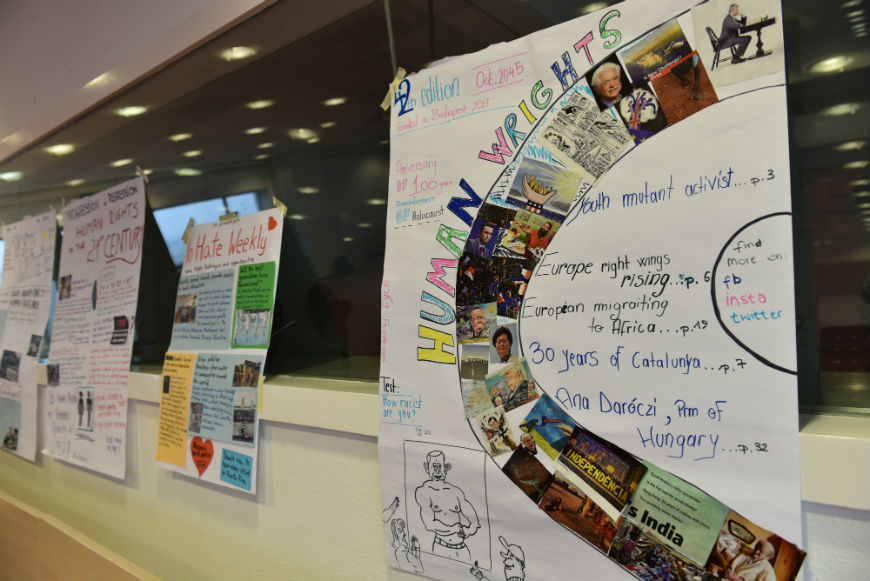
The impact of activities is measured through a standardised evaluation and reporting, defined in detail in the Quality standards in education and training activities of the Youth Department and in the Criteria for study sessions to be held in co-operation with the European Youth Centres. An adequate evaluation of the activities is crucial to secure, among others, stocktaking the results also with regard to the long-term perspective, the evaluation of the quality of the learning process and the follow-up. Regular progress reports are also provided for the statutory bodies by the Secretariat of the Youth Department twice a year.
How do you define, in your work, quality in training?
The Youth Department’s approach towards providing quality in educational and training activities is defined in the quality standards mentioned earlier.
The quality standards describe what should be in certain activities and also relate to how they are prepared, delivered and evaluated. The notion of quality is socially, institutionally and culturally marked, and it concerns the whole spectrum of context, partners, people, methods and stages of the activity or project, therefore different understandings of it may occur between partners. Quality in non-formal education should be seen as a permanent endeavour to those responsible for its practice, and the standards below intend to provide practitioners a minimum set of criteria. Many of them may be difficult to measure in the short or even medium term; however, this does not mean that they cannot be evaluated. The standards should apply to all the activities organised by or in co-operation with the Youth Department.
The quality standards as applicable to the activities of the Youth Department are:
- A relevant needs assessment
- Specific, achievable and assessable objectives
- Definition of competences addressed and learning outcomes for the participants
- Relevance to the Council of Europe programme and Youth Department’s priorities
- An adequate and timely preparation process
- A competent team of trainers and facilitators
- An integrated approach to intercultural learning, participation and human rights education
- Adequate recruitment and selection of participants
- A consistent practice of non-formal education principles and approaches
- Adequate, accessible and timely documentation
- A planned and open process of evaluation
- Optimal working conditions and environment
- An adequate institutional support and an integrated follow-up
- Visibility and communication
- Concern for innovation and research
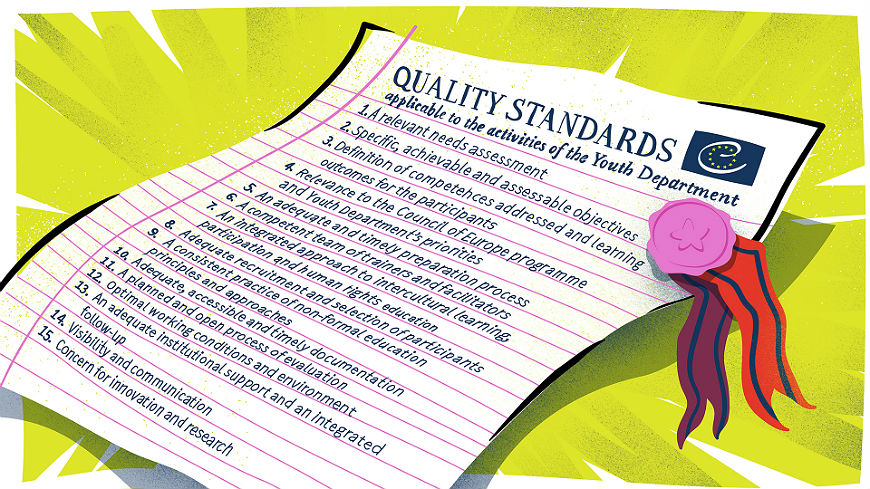
What is the place and value of working with competences in the work of the Council of Europe’s Youth Department on training, particularly in relation to trainer competences?
According to the quality standards for the educational activities of the Youth Department, all activities should have explicit and identifiable learning outcomes – namely a clear set of competences (knowledge, skills, attitudes and values) to be addressed and developed with and by the participants. This applies especially to training, while other educational activities may be limited to presenting learning outcomes. One of the milestones in the pathways to recognition of youth work is the Council of Europe Youth Work Portfolio, an online tool that helps individuals, teams and organisations to reflect on their competence and to develop it more effectively.
Learning and competence development, as well as intercultural learning processes, rely heavily on the competences and abilities of the trainers and facilitators responsible for the activity. In its offer of educational programmes, the Youth Department relies on multicultural teams of trainers and facilitators, with complementary roles and competences, recruited through a transparent process and accountable to all stakeholders. The required competencies for profiles of junior and senior trainers are clearly defined for members of the Trainers Pool, but may also apply to other educators and consultants involved.
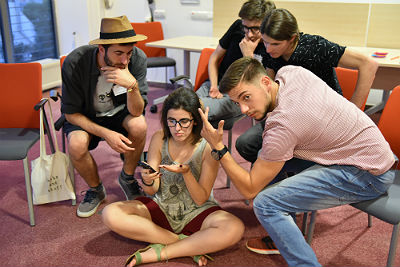
Besides regular study sessions and other activities developing the skills of multipliers, the Youth Department contributes to specifically improving the competences of educators active in human rights education through a number of national and international short- and long-term training courses, the most well-known ones currently being the Training of Trainers in Human Rights Education with Young People (TOTHRE) and the Training Course for Facilitators of Study Sessions, or the recent TRAYCE training that was based on a specific competences framework for trainers in the youth field.
From all the training activities of the Council of Europe’s Youth Department on training, could you tell us more about one which is really representative of the principles, values and objectives you want to reach.
Besides the study sessions and training mentioned previously, Consultative Meetings and Seminars that gather young people, youth organisations, decision makers, staff members and other experts, researchers and practitioners are important elements in our programme. They have the potential of contributing to innovation in the youth sector and provide direct links for young people to make their voice heard in decision making and policy development.
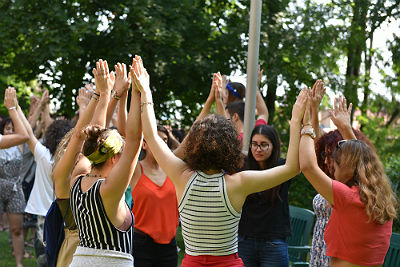
The regular “50-50” training seminars for specialists from national and local authorities working with young people and representatives of youth non-governmental organisations are also activities that represent well the Youth Department’s approach in providing space for young people’s active participation. The model, which actually evokes the spirit of co-management in place in the Council of Europe youth sector, implies participation with an equal number of representatives from the governmental and non-governmental sectors working with young people; and aims to strengthen their co-operation and partnership in the development of youth policy and youth work with the direct involvement of young people in the decision-making processes.
How do you see the role of trainers in the youth field? Do you see trainers more as providers of training or as a community of practice involved, like other communities, in the shaping of the youth field?
As mentioned before, the Youth Department relies on its Trainers Pool and also occasionally on other experts and trainers in order to ensure that training courses and other educational activities planned and organised within our programme are run by experienced and reliable educational teams. The trainers typically assume roles as educational advisors during study sessions, as trainers in charge of training courses, often including e-learning activities, project development support and mentoring; as authors of studies, evaluations and surveys; as rapporteurs and authors of reports; as contributors to educational publications and sometimes as lecturers and resource persons.
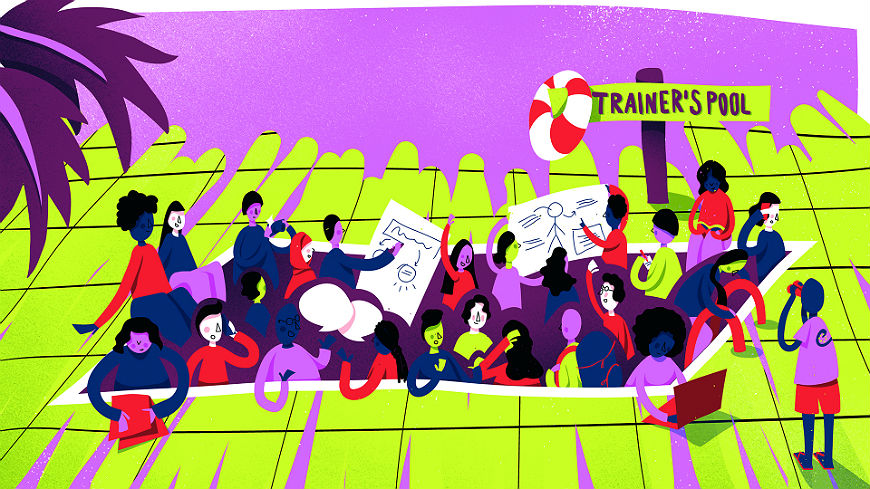
Every two to three years, meetings of the Trainers Pool ensure that its philosophy, functioning, role and value for the programme of activities of the Youth Department are regularly reviewed. They are also meant to enhance the co-operation between members of the Trainers Pool and the educational staff of the Youth Department and to support the quality development of activities by providing training opportunities and space for exchange of good practices in areas relevant to their work as trainers.
From your perspective, what do you see today as the main topics we should be discussing more about in training in the youth field?
The main biennial priorities and topics discussed in the programme of activities are defined by the co-management of the Youth Department of the Council of Europe, while the broad political roadmap by longer-term strategies – the new one for the period 2020-30 is under the process of development. This strategy should be general enough so that its policy orientations do not become quickly outdated and should provide the framework within which the next five biennial programmes can be implemented – of course the core values remaining in focus: democracy, human rights and the rule of law. The several Recommendations by the Council of Europe, especially recent ones on access to rights, on youth work and on supporting young refugees in transition to adulthood also define clear and relevant directions not only for the Youth Department but for all stakeholders, and they have the power to urge decision makers and other stakeholders to act in line with commonly agreed principles, values and rules.
Speaking more from a practitioner’s point of view, as educational advisors we must say that there is a high need to focus on fundamental topics such as diversity, anti-discrimination, intercultural learning and human rights. Democracy and active democratic participation of young people should also be covered in more activities. One of the concerns we have is that human rights education activities are oftentimes narrowed down to specific issues to such an extent that there remains no space for actually providing a general understanding of human rights as a framework. Examples can range from discovering sexual education with a focus only on gender awareness raising without considering the issues of anti-discrimination and (sexual) health or looking for counter-strategies against hate speech without discovering the existing frameworks for protection. Most probably sustainability, peace and security – all linked to the Sustainable Development Goals of the UN – should also be more present in our work.
 |
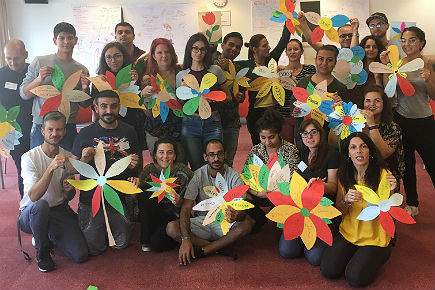 |

